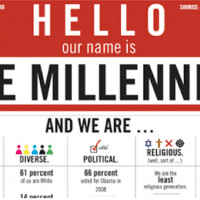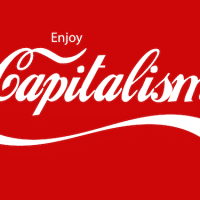-
Capitalism and punishment
David Russio takes a look into the punishments (deaths) that come from capitalism. For is it really bringing balance to the destruction that it causes. That seems to be the loaded question we all know the answer to.
-
“Colombia is safe for business, but not for people”
Murders of trade unionists and social leaders, paramilitary activity, coca production… If we only paid attention to the mainstream media we would not get the idea that these problems are actually growing in Colombia, one year after the peace agreement between the Colombian government and the FARC came into place. To get a better picture and understand how all these elements connect to US policy and corporate interests, we interviewed Daniel Kovalik, a lawyer and human rights activist who has long been involved in the struggle for peace and justice in Colombia.
-
IMF, World Bank, & structural adjustment
IMF, World Bank, & Structural Adjustment
-
What is racial capitalism and why does it matter?
Talk by Robin D. G. Kelley on “What is Racial Capitalism and Why Does It Matter?” recorded November 7, 2017 at Kane Hall, University of Washington, Seattle, WA. Sponsored by the UW Simpson Center for the Humanities.
-
Labor market conundrum
Nary a day goes by that President Trump and/or the talking heads on CNBC fail to mention the following unemployment chart as evidence that “everything is awesome” with the U.S. economy…
-
Latin America: 200 years of the infernal cycle of debt
Venezuela is an emblematic case of the infernal cycle that Latin America has been struggling with over the last two centuries. It all began in 1810, when Simon Bolivar, a figurehead of the Spanish colonies in their fight for freedom, began borrowing from London in very unfavourable conditions to finance the wars of independence.
-
Social reproduction theory: What’s the big idea?
Key to social reproduction theory (SRT) is an understanding of the ‘production of goods and services and the production of life are part of one integrated process’, or in other words: acknowledging that race and gender oppression occur capitalistically.
In this article, Susan Ferguson, a contributor to Social Reproduction Theory, shows how SRT can deepen our understanding of everyday life under capitalism. She explores the history of this dialectical approach, its variances, and its potentialities; providing an answer to the question: social reproduction theory, what’s the big idea? -
Capitalism unhinged: crisis of legitimacy in the United States
This is expanded and updated from an article first published in German in Das Argument: Zeitschrift für Philosophie und Sozialwissenschaften, no. 323 (2017/3); republished with the kind permission of its editors; originally presented in a panel “The Crisis of the Political,” Institut für kritische Theorie, Berlin, June 9, 2017. For their comments and suggestions, I […]
-
The precariat under rentier capitalism
The Precariat under Rentier Capitalism Guy Standing We are in the midst of a Global Transformation, analogous to Karl Polanyi’s Great Transformation described in his seminal 1944 book. Whereas Polanyi’s Transformation was about constructing national market systems, today’s is about the painful construction of a global market system. To use Polanyi’s term, the ‘dis-embedded’ phase has been dominated by an ideology of market liberalisation, commodification and privatisation, orchestrated by financial interests, as in his model. The similarities also extend to today’s fundamental challenge, how to construct a ‘re-embedded’ phase, with new systems of regulation, distribution and social protection.
-
Not with a bang but with a (prolonged) Whimper
It is probably obvious to everyone that global capitalism is in dire straits, notwithstanding the brave talking up of output recovery that now characterises almost every meeting of the international governing elite. Even so, discussions of the end of capitalism still typically seem overstated and futile, not least because those hoping and mobilising for bringing in an alternative system are everywhere so scattered, weak and demoralised
-
Tackling Britain’s private debt crisis
As of July 2017, the Bank of England measured the stock of private debt held by individuals at £1.548 trillion; making household sector indebtedness one of the biggest problems facing the United Kingdom’s economy and society. There is growing public policy concern over the historically unprecedented level of household debt but little by way of proposed solutions to deal with it.
-
Where has all the surplus gone?
Thanks to the release of the so-called Paradise Papers, and the additional research conducted by Gabriel Zucman, Thomas Tørsløv, and Ludvig Wier, we know that a large share of the surplus captured by corporations is artificially shifted to tax havens all over the world.
-
Political economy of labour repression in the United States
Why is the book called “Political Economy of Labor Repression in the United States”, and not the “History of Labor Repression in the United States”? Considering it is a rather comprehensive survey of labour history in the US, how do you explain your choice of the title?
-
Just say no to NAFTA
The North American Free Trade Agreement (NAFTA) is unpopular with many working people in the United States, who correctly blame it for encouraging capital flight, job losses, deindustrialization, and wage suppression.
-
Step by step: How to fabricate news about the ‘default’ in Venezuela
Let us not forget that Standard & Poor, Moody and Fitch rating services are financed by the banks and therefore have no real independence.
-
How capitalism uses gender oppression to rule
Following is the text of a talk delivered by the author on Nov. 4 at the “The Solution is Socialism” educational conference in Connecticut. The conference was hosted by the Youth for Socialist Action chapter at Central Connecticut State University, where the sessions were held.
-
150 Years of Capital—with No End in Sight
For Capital’s explosive force to truly unfold, not only was education in general necessary, but also knowledge of the relevant economic and philosophical theories, in order to perceive not just the explicit, but also the implicit critiques.
-
At the bottom of the wealth pyramid
Yesterday, I looked at the enormous wealth of U.S. billionaires and the growing gap between them and the rest of the American people.
-
Precarious Work! The Reserve Army of Labor
The Reserve Army of Labor
-
Economist Harry Magdoff UVM lecture – the ‘Stock Market Crash’
Harry Magdoff at UVM on the Stock Market Crash. Intro by Abbas Alnasrawi. Sponsored by SPARC.




















